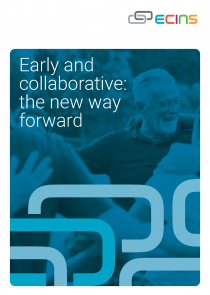The Troubled Families Initiative (TFI) was launched by the Government in 2011 to help families that suffer a complex range of serious problems, including parents not working and children not in school and causes of serious problems such as youth crime and anti-social behaviour. An estimated £9 billion is spent annually on these 120,000 most troubled families, an average spend of £75,000 per family per year. 2 per cent of families suffer significant multiple problems that in turn make them more likely to place demands on local services, such as health, social care and criminal justice.
The Government has committed to contribute up to £4,000 per family towards the cost of successfully intervening with eligible families across England.
Progress so far
- Local Authorities have been working to identify families in their boroughs and districts that meet the criteria of the programme which includes:
- those involved in youth crime or anti-social behaviour
- have children who are regularly truanting or not in school
- have an adult on out of work benefits
- cause high costs to the public purse.
- The initiative aims to:
- get children back into school
- reduce youth crime and anti-social behaviour
- put adults on a path back to work
- reduce the estimated £9 billion these families cost the public sector each year.
- The Government has highlighted that there is a need for change in the approach to dealing with troubled families. Proven work through programmes such as family intervention projects has shown that dealing with each family’s problems as a whole rather than individually is one of the most important factors in achieving success. Joining up local services so that they can ‘talk’ to each other and communicate effectively drastically improves the service delivery to the individual whilst helping to reduce duplication of effort provided by support workers.
5 essential steps to providing the solution:
- Deal with individuals as a ‘whole’: Remember a person can be a victim, an offender and a vulnerable person at the same time.
- Get everyone involved who needs to be involved: Create an environment where everyone knows what everyone else is doing.
- Take a joined up approach to enable effective case work management and early intervention: Early intervention and identification of ‘trigger factors’ can prevent the break up of the family unit.
- Employ efficient and effective local neighbourhood management: Now is the time to be innovative and reduce duplication of effort and resources.
- Simplify evidence gathering: Consider using a central information hub.
ECINS is live in 6 counties with 2 more in the process of going live. It is being used to manage a range of community and social issues, many of which are experienced by members of troubled families including:
- Anti Social Behaviour
- Vulnerable persons
- Victims and Offenders
- Family Intervention Programmes
- ‘Troubled Families’ initiative
- Houses in Multiple Occupancy (HMO’s)
- Street Drinkers
- High (Red) and Medium (Amber) priority licensed premises
- Hate Crime
- Domestic Abuse
- Restorative Justice
- Acquisitive Crime
- Gangs and Gang Violence
- Integrated Offender Management (E-CINS is enabling the full IOM vision to be achieved by allowing the prisons to easily access and update information in order for the IOM journey to continue when a person has been incarcerated).
- Those districts that already use E-CINS to manage any of these issues are likely to find that individual profiles greatly overlap with the criteria set for identifying troubled families and that one individual profile may appear under multiple headings.
If a district is already using ECINS to manage ASB or IOM then the duplication of effort is greatly reduced and a significant time saving will be made by extending its use to include the management of troubled families.
1. Deal with individuals and a family as a ‘whole’:
When we were asked to develop ECINS the Home Office’s vision was to give organisations such as the police, social services, health and councils the ability to ‘manage’ victims, offenders and vulnerable people on one secure cloud based system. Two years later the reality is that ECINS now enables these organisations to deal with an individual or a family as a whole because a person can be a victim, an offender and a vulnerable person all at the same time. This is one of the reasons it lends itself so well to managing troubled families.
2. Get everyone involved who needs to be involved:
This is where ECINS really makes a difference. We believe we are unique in helping partnerships maximise participation by allowing organisations, their partners and their users unlimited access. With ECINS there are no user licences, no limits on the number of users who can access the system and no limits on the volume of data you can upload and share. As a not-for-profit social enterprise you can be assured that our non-commercial low cost ,’no limits’ policy means more money can be targeted at helping families.
It is estimated that the average unit cost of intensive interventions that are known to work with families falling into the Troubled Families category, including family intervention projects and others, is around £10,000. The fact that ECINS is non-commercial and offered at a very low cost means more money can be directed where it is needed most, at the family and not to software companies. ECINS enhances engagement, support and monitoring of victims, offenders and vulnerable persons.
3. A joined up approach to enable effective case work management and early intervention:
As well as being a comprehensive case management system ECINS can act as a signposting tool so that practitioners can see who the lead agency or practitioner is and who is involved with an individual or family. This ensures co-ordinated action is taken earlier at a local level.
4. Efficient and effective local neighbourhood management:
ECINS allows practitioners to work in an innovative new partnership world, allowing them to capitalise on the fact that the Government is not instructing local authorities to do the Troubled Families work in one particular way. However the programme will be based on proven intervention techniques and this is where ECINS will help agencies coordinate this action as well as reducing duplication of effort and resources.
ECINS enables:
- an intense whole family approach to be taken, rather than dealing with family members individually
- a single key worker or small team to work in an environment where everyone knows what everyone else is doing
- different agencies such as the police, social services, schools and health visitors to work together rather than on their own.
- real time information sharing and disclosure
- enable early intervention to reduce offending and the possible break up of the family unit
- improved connectivity
- time and efficiency savings
- co-ordinated action is taken earlier in all cases at a local level
- the ability to identify persons and cases of greatest risk and vulnerability
- Secure access via handheld devices such as tablets, mobile phones and PDA’s means that practitioners can update records in real time without having to return to the office.
5. E-CINS simplifies evidence gathering:
ECINS acts as the central neighbourhood hub and with its comprehensive reporting tools it simplifies the process of claiming the Government’s results-based payments. Information on individuals can be recorded across many variables so that comprehensive statistics can be quickly collated.
ECINS effectively sits as an information storage and sharing cloud above an area and the ‘land based’ systems operated by all the various organisations. This enables organisations to continue to use their legacy software systems and to share information via a secure internet based system. It acts as a multi-agency safety net and creates an environment where everyone knows what everyone else is doing, enabling help and support to be quickly and effectively ‘wrapped‘ around victims, vulnerable persons and offenders.


